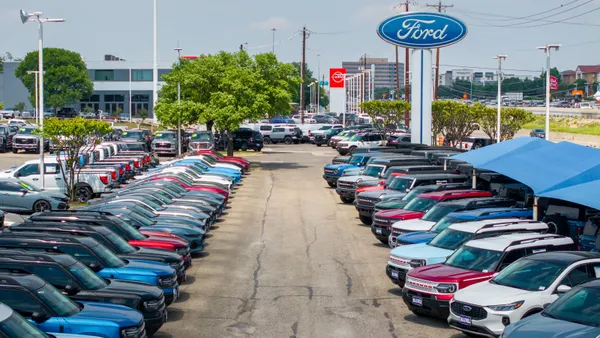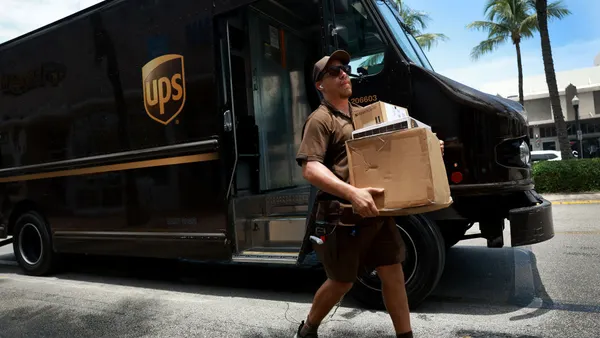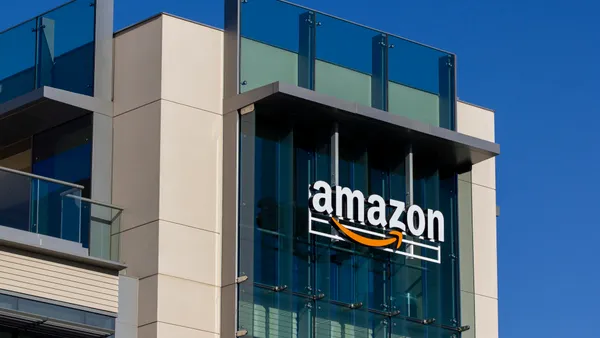Dive Brief:
- In an article in Supply Chain 24/7, Wolfgang Lehmacher, head of supply chain and transport industries for the World Economic Forum, writes that automating the logistics function will make the flow of goods safer, more efficient, and more environmentally friendly. He notes that with factory automation, delivery drones, self-driving cars and even the potential for self-driving ships, the end-to-end supply chain is almost complete.
- According to a worldwide self-driving study of 5500 city residents conducted by the World Economic Forum, 88% of respondents felt that autonomous vehicles will gradually become a reality in the next 10 years, and 60% expect a ban on private cars in cities in the next 15 years. Some predicted that cities would eventually regulate the deliveries of goods, a main cause of urban traffic congestions. Autonomous vehicles might improve congestion.
- Lehmacher notes that transportation companies, and shippers, need to be prepared for the autonomous future of transportation. He states that the automated supply chain will cause the reevaluation of logistics systems, citing innovation and flexibility for operators, as well as investments in technology and infrastructure. He does warn about cyber risk and the potential negative impact on jobs.
Dive Insight:
Many of the supply chain and logistics innovations come from the retail sector. Companies such as Wal-Mart, Target, and Amazon continually innovate and fine-tune their logistic processes to improve their flow of materials from suppliers through to the end user. In an industry with traditionally low margins, any incremental cost savings will help the bottom line, putting the importance of supply chain management on par with marketing and store operations. Many of the logistics advances make the jump to manufacturing and other industries.
The use of autonomous vehicles is not new. Robots assemble parts of automobiles and also are used to pick items in automated warehouses. "Lights-out" machine tools chug along day and night in modern machine ships. It is a natural evolution to move the autonomous concept out of the warehouses and plants and into the skies and onto the highways.
Fulfillment is key. The 'last mile', the important concept for logisticians to deliver goods to the customer, is the driver of the autonomous movement. Delivery by drone within hours of hitting the 'buy' button can be a competitive advantage in a crowded marketplace. Self-driving delivery trucks, perhaps traveling between distribution centers, are on the near horizon, as are ships with no captains. Considered science fiction not too many years ago, an autonomous fleet moving products around the globe is within reach. Will the UPS driver go the way of the transistor radio, the landline telephone, or the fax machine? Probably not, but the momentum of autonomous vehicles is increasing. Supply chain managers might not have a choice but to accept, and even embrace, these changes.












